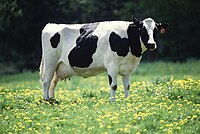
The Political Legitimacy of Global Governance and the Proper Role of Civil Society Actors
Sign Up to like & getrecommendations! Published in 2018 at "Res Publica"
DOI: 10.1007/s11158-017-9386-x
Abstract: In this paper, two claims are made. The main claim is that a fruitful approach for theorizing the political legitimacy of global governance and the proper normative role of civil society actors is the so-called… read more here.
Keywords: civil society; political legitimacy; global governance; society actors ... See more keywords

Regaining legitimacy in the context of global governance? UNESCO, Education for All coordination and the Global Monitoring Report
Sign Up to like & getrecommendations! Published in 2017 at "International Review of Education"
DOI: 10.1007/s11159-017-9646-1
Abstract: This research note shares insights which resulted from a larger study into the ways in which the United Nations Educational, Scientific and Cultural Organization (UNESCO) – during 2010–2014 – used its position as coordinator of… read more here.
Keywords: global monitoring; monitoring report; global governance; education ... See more keywords

Global Governance of Resources and Implications for Resource Efficiency in Europe
Sign Up to like & getrecommendations! Published in 2019 at "Ecological Economics"
DOI: 10.1016/j.ecolecon.2018.01.007
Abstract: Consumption and production of natural resources in Europe is associated with increasingly globalised dependencies and impacts. It is crucial in this context that any national and regional policy reform efforts in Europe—designed to increase the… read more here.
Keywords: global governance; governance resources; resource efficiency; efficiency ... See more keywords

The Choice between Intergovernmentalism and Nongovernmentalism: Projecting Domestic Preferences to Global Governance
Sign Up to like & getrecommendations! Published in 2018 at "World Politics"
DOI: 10.1017/s0043887118000151
Abstract: abstract:This article seeks to explain when governments are more likely to take an intergovernmental approach to resolving global collective problems rather than step back and encourage (or simply allow) nongovernmental actors to become the main… read more here.
Keywords: intergovernmentalism nongovernmentalism; domestic preferences; choice intergovernmentalism; global governance ... See more keywords

Resolving the Question of Inter-Scalar Legitimacy into Law? A Hard Look at Proportionality Balancing in Global Governance
Sign Up to like & getrecommendations! Published in 2018 at "Leiden Journal of International Law"
DOI: 10.1017/s0922156518000390
Abstract: Abstract In this article, I examine the attempt to apply proportionality balancing (PB) to the co-ordination of the relations between governance regimes, which I call ‘inter-scalar PB’, from the perspective of competing institutional arrangements of… read more here.
Keywords: proportionality; law; inter scalar; governance ... See more keywords

Erratum: Cyberweapons: an emerging global governance architecture
Sign Up to like & getrecommendations! Published in 2017 at "Palgrave Communications"
DOI: 10.1057/palcomms.2017.4
Abstract: Correction to: Palgrave Communications (2017) 3, Article number: 16102. doi: 10.1057/palcomms.2016.102; Published 10 January 2017; Updated 19 January 2017 Previously the volume number given for the citation in the Additional Information section of this paper… read more here.
Keywords: governance architecture; volume; emerging global; global governance ... See more keywords

Digitising biopiracy? The global governance of plant genetic resources in the age of digital sequencing information
Sign Up to like & getrecommendations! Published in 2022 at "Third World Quarterly"
DOI: 10.1080/01436597.2022.2079489
Abstract: Abstract Historical concerns over the exploitation of the Global South’s genetic biodiversity framed the importance of creating global governance mechanisms to ensure fair access to and benefit-sharing of genetic resources worldwide. The Convention on Biological… read more here.
Keywords: sequencing information; genetic resources; plant genetic; plant ... See more keywords

The United Nations as Leviathan: Global Governance in the Post-American World
Sign Up to like & getrecommendations! Published in 2023 at "New Political Science"
DOI: 10.1080/07393148.2023.2205321
Abstract: Klimat is not a highly-detailed or technical description of the processes of climate change as they affect Russia. It clearly analyses the current and likely future economic effects of global mean temperature increase on Russia’s… read more here.
Keywords: united nations; post american; leviathan global; nations leviathan ... See more keywords

Digital DNA: disruption and the challenges for global governance
Sign Up to like & getrecommendations! Published in 2019 at "Cambridge Review of International Affairs"
DOI: 10.1080/09557571.2018.1563971
Abstract: ited yield when compared with his rigorous historical analysis allude to longstanding ontological, epistemological and methodological issues for IR scholarship on emotions moving forward. Though many non-rational choice scholars envy the parsimony of rational choice… read more here.
Keywords: disruption challenges; rational choice; dna disruption; digital dna ... See more keywords

The Global Governance of Systemic Risk: How Measurement Practices Tame Macroprudential Politics
Sign Up to like & getrecommendations! Published in 2018 at "New Political Economy"
DOI: 10.1080/13563467.2018.1545754
Abstract: ABSTRACT This article explores how systemic risk has been governed at the international level after the financial crisis. While macroprudential ideas have been widely embraced, the policy instruments used to implement them have typically revolved… read more here.
Keywords: risk; governance systemic; systemic risk; global governance ... See more keywords

Status competition and rising powers in global governance: an introduction
Sign Up to like & getrecommendations! Published in 2019 at "Contemporary Politics"
DOI: 10.1080/13569775.2019.1627767
Abstract: ABSTRACT This introductory article delves into the assessment of status policies and status seeking strategies of rising powers and most particularly their status competition among themselves in multiple platforms of global governance. Different from the… read more here.
Keywords: status; status competition; competition; global governance ... See more keywords